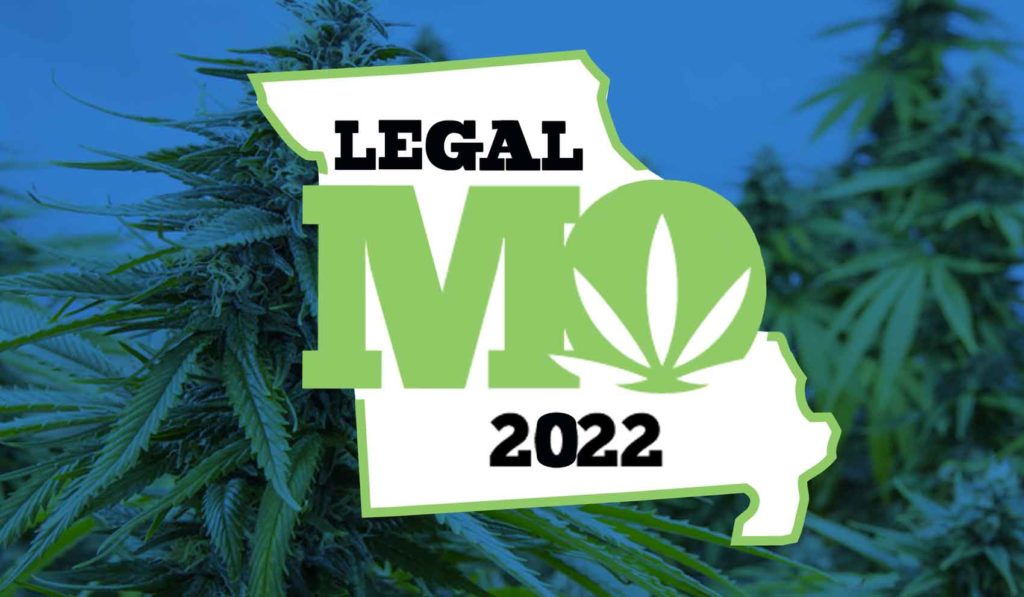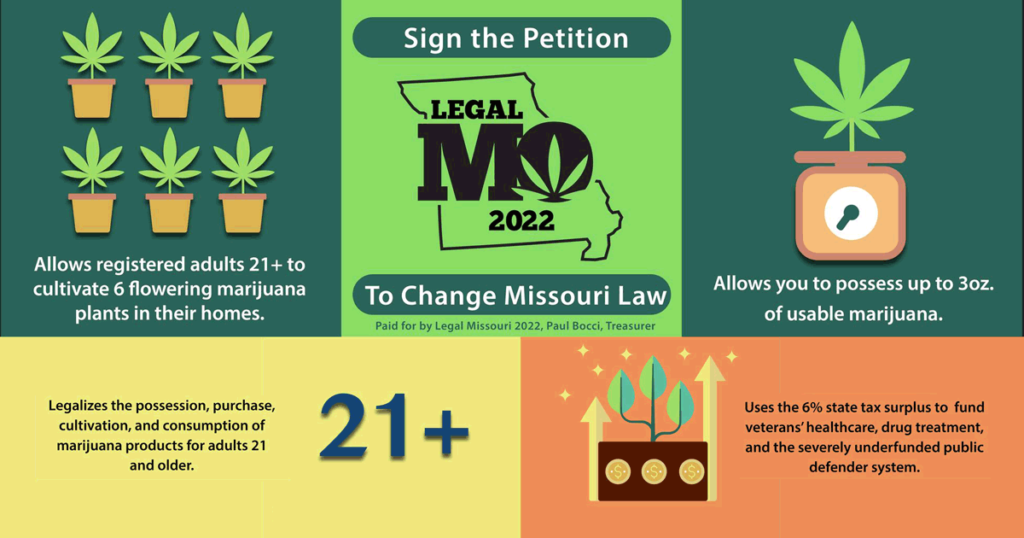
At-A-Glance Petition Highlights:
Allows Missourians 21 years and older to possess, purchase, consume and cultivate marijuana.
Levies state taxes of 6 percent on retail sales of marijuana. New revenue funds regulatory program and costs to process automatic expungements, with the surplus split equally between veterans’ healthcare, drug addiction treatment, and Missouri’s underfunded public defender system.
Allows local governments to assess local sales taxes of up to 3 percent.
Additional state and local tax revenue will generate tens of millions of dollars annually.
Allows Missourians with nonviolent marijuana-related offenses to automatically expunge their criminal records. Most similar programs in other states require those seeking to vacate their convictions to first petition the courts, adding time and expenses.
Violent offenders and those whose offenses involved distribution to a minor or operating a motor vehicle while under the influence of marijuana would be ineligible for expungement.
Allows local communities to opt out of adult use retail marijuana sales through a vote of the people.
Builds on success of Missouri’s medical cannabis program, which in August 2021 had registered more than 135,000 patients and caregivers, far surpassing initial estimates. The state has tallied more than $90 million in medical cannabis sales from late October 2020, when dispensaries first opened, through July of this year.
Seeks to broaden participation in the legal cannabis industry by small business owners and among historically disadvantaged populations, including those with limited capital, residents of high-poverty communities, service-disabled veterans and those previously convicted of non-violent marijuana offenses.

This new category of business license holders would have to meet at least one of the following requirements:
Have a net worth of less than $250,000 and income below 250 percent of the federal poverty level for at least 3 of the previous 10 years;
Have a valid service-connected disability card issued by the U.S. Department of Veterans Affairs;
Have been arrested, prosecuted or convicted of a non-violent marijuana offense, or be the parent, guardian or spouse of such a person;
Live in a ZIP code or Census tract with high poverty, unemployment, marijuana imprisonment rates;
Graduated from an unaccredited school district, or lives in a ZIP code with such a district for at least three of the past five years.
Adds a minimum of 144 of these new small businesses to the existing 378 licensed and certified cannabis businesses in the state.

To ensure statewide access, 18 of these new businesses will be added in each of the state’s eight congressional districts over time. At least six of those new businesses in each district must operate as dispensaries. The remainder will be designated as wholesale facilities, a new category that allows operators to both cultivate the plant and manufacture cannabis products such as edibles, vape cartridges, topicals and concentrates.
Existing license holders would have the opportunity to quickly convert their medical-only facilities to businesses serving both medical patients and adult consumers, which will immediately reduce sales on the illicit market.
All new license holders will be selected at random, by lottery.
Adds nurse practitioners to the category of healthcare professionals who can issue medical cannabis recommendations to patients.
Paid for by Legal Missouri 2022, Paul Bocci, Treasurer.
